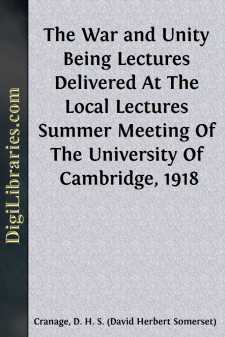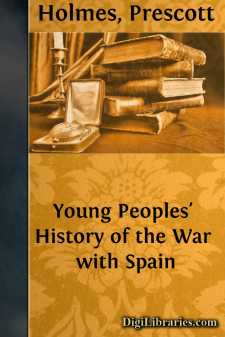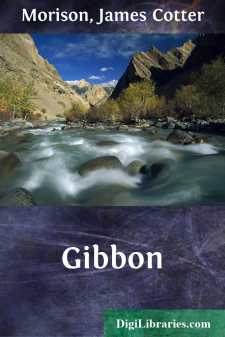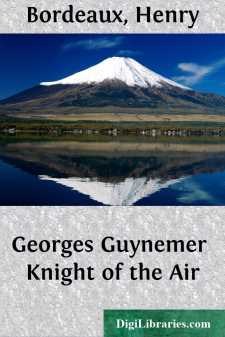History
- Africa 30
- Americas (North Central South West Indies) 50
- Ancient 68
- Asia 58
- Australia & New Zealand 8
- Canada 41
- Caribbean & West Indies 1
- Civilization 20
- Eastern Europe 12
- Europe 310
- Expeditions & Discoveries 60
- General 77
- Historical Geography 1
- Jewish 9
- Latin America 3
- Medieval 8
- Middle East 13
- Military
- Revolutionary 8
- Study & Teaching 5
- United States 353
- Western Europe 56
- World 13
Military Books
Sort by:
I. A GENERAL VIEW By the Rev. V. H. Stanton, D.D. The governing idea of this early morning course, which at the present as at former Summer Meetings is devoted to a subject connected with religious belief, is this year the power that Christianity has, or is fitted to have, to unite Christian denominations with one another, and also to unite races and nations, and different portions of that commonwealth...
more...
by:
Prescott Holmes
CHAPTER I. THE CAUSE OF THE WAR. On April 21st, 1898, a war began between the United States and Spain. All the other countries of the world felt an interest in it, but did not take any part in it. They were what we call "neutral"—that is, they did not help either side. As soon as the war was proclaimed a great wave of excitement swept through the United States, from shore to shore. Flags were...
more...
CHAPTER I. GIBBON'S EARLY LIFE UP TO THE TIME OF HIS LEAVING OXFORD. Edward Gibbon was born at Putney, near London, on 27th April in the year 1737. After the reformation of the calendar his birthday became the 8th of May. He was the eldest of a family of seven children; but his five brothers and only sister all died in early infancy, and he could remember in after life his sister alone, whom he...
more...
by:
Ian Hay
CHAPTER ONE For several months it has been the pleasant duty of the writer of the following deliverance to travel around the United States, lecturing upon sundry War topics to indulgent American audiences. No one—least of all a parochial Briton—can engage upon such an enterprise for long without beginning to realize and admire the average American's amazing instinct for public affairs, and the...
more...
CHAPTER I MOBILIZATION OF PUBLIC OPINION The Haupttelegraphenamt (the Chief Telegraph Office) in Berlin is the centre of the entire telegraph system of Germany. It is a large, brick building in the Franzoesischestrasse guarded, day and night, by soldiers. The sidewalks outside the building are barricaded. Without a pass no one can enter. Foreign correspondents in Berlin, when they had telegrams to send...
more...
INTRODUCTORY The close of the fifteenth century had left the whole structure of mediæval Europe to all appearance intact. Statesmen and writers like Philip de Commines had apparently as little suspicion that the state of things they saw around them, in which they had grown up and of which they were representatives, was ever destined to pass away, as others in their turn have since had. Society was...
more...
by:
Henry Bordeaux
CANTO I CHILDHOOD I. THE GUYNEMERS In his book on Chivalry, the good Léon Gautier, beginning with the knight in his cradle and wishing to surround him immediately with a supernatural atmosphere, interprets in his own fashion the sleeping baby smiling at the angels. "According to a curious legend, the origin of which has not as yet been clearly discovered," he explains, "the child during...
more...
by:
A. J. Evans
CHAPTER I CAPTURE For over three months No. 3 Squadron had been occupied daily in ranging the heavy guns which night after night crept into their allotted positions in front of Albert. On July 1st 1916 the Somme offensive opened with gas and smoke and a bombardment of unprecedented severity. To the pilots and observers in an artillery squadron the beginning of this battle brought a certain relief, for...
more...
INTRODUCTORY The following extract from the Espejo de Navegantes, or Seamen's Glass, of Alonso de Chaves serves to show the development which naval tactics had reached at the dawn of the sailing epoch. The treatise was apparently never published. It was discovered by Captain Fernandez Duro, the well-known historian of the Spanish navy, amongst the manuscripts in the library of the Academy of...
more...
CHAPTER I AT HOME—1914-1915 August 4th, 1914, marks the end and also the beginning of two great epochs in the history of every Territorial Unit. It marked the close of our peace training and the beginning of thirteen months' strenuous war training for the thirty-seven months which we were to spend on active service abroad. The Fiery Cross which blazed across the entire Continent caught most...
more...











